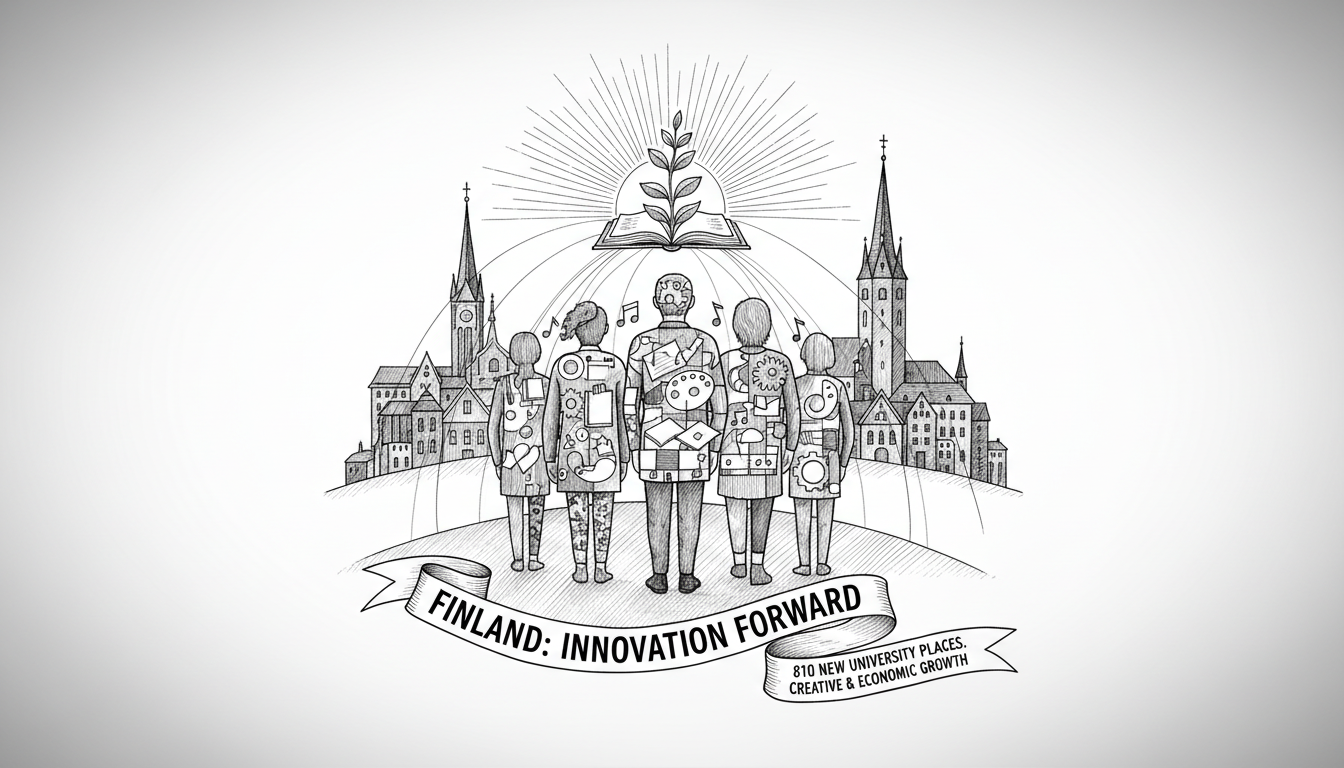The Finnish government has announced plans to create approximately 810 new university and polytechnic starting positions in a one-time expansion. Half of these positions will go to universities while the other half will go to polytechnic institutions. The proposal targets fields that support economic growth and prioritizes first-time applicants.
Science and Culture Minister Mari-Leena Talvitie stated the new positions will focus on nuclear and energy technology, quantum technology, artificial intelligence, and creative industries. The Ministry of Economic Affairs has identified these as growth sectors based on industry demand, employment prospects, and average student completion rates.
This expansion comes despite recent increases in medical, veterinary, special education, and nursing programs. The government aims to have half of young adults highly educated by 2030, but currently only about 39% of 25-34 year olds hold higher education degrees.
Education officials are discussing whether some positions could open as early as next year. Completely new degree programs would likely begin in autumn 2027 or early 2028 according to ministry estimates.
The proposal includes a significant innovation: a study voucher system for applicants who don't secure spots in the joint application process. These vouchers would provide two years of free access to open university courses worth up to 30 credits. Current open university studies cost 45 euros per credit.
Talvitie sees multiple benefits in this approach. The free pathway encourages students to pursue their chosen field and allows credit transfer toward future degrees. It also provides flexibility for students who discover their initial choice wasn't right for them.
The government has allocated substantial funding for these initiatives. The three-year study voucher trial would receive about 56 million euros between 2026 and 2028. The new university positions and related student support would get approximately 11 million euros in 2026 and about 44 million euros total across the three-year period.
Another major reform would allow complete degree programs through paid open university pathways. The Education Ministry has begun preparatory work with plans to implement this change during the current government term. This would require legislative changes permitting higher education institutions to offer full degrees through open university channels if they choose.
The timing of these reforms presents both challenges and opportunities. Finland currently faces weak employment conditions overall, with growing unemployment even among recent graduates. Yet the government maintains that education remains the best guarantee for both employment and building future lives.
Later this year, the government will also propose a single study place rule. This would require students to relinquish other study rights at the same or lower level when accepting a new position. Data shows about one quarter of 2023 higher education starters already held completed degrees.
These reforms represent Finland's attempt to balance immediate economic needs with long-term educational goals. The focus on both traditional growth sectors and creative fields shows recognition that future economic success requires diverse skills. The voucher system acknowledges that not all valuable learning happens within traditional degree structures.
What remains unclear is how these changes will affect Finland's competitive position in the global education landscape. The country has long prided itself on equal access to quality education. These reforms could either enhance that tradition or create new divisions between different educational pathways.

